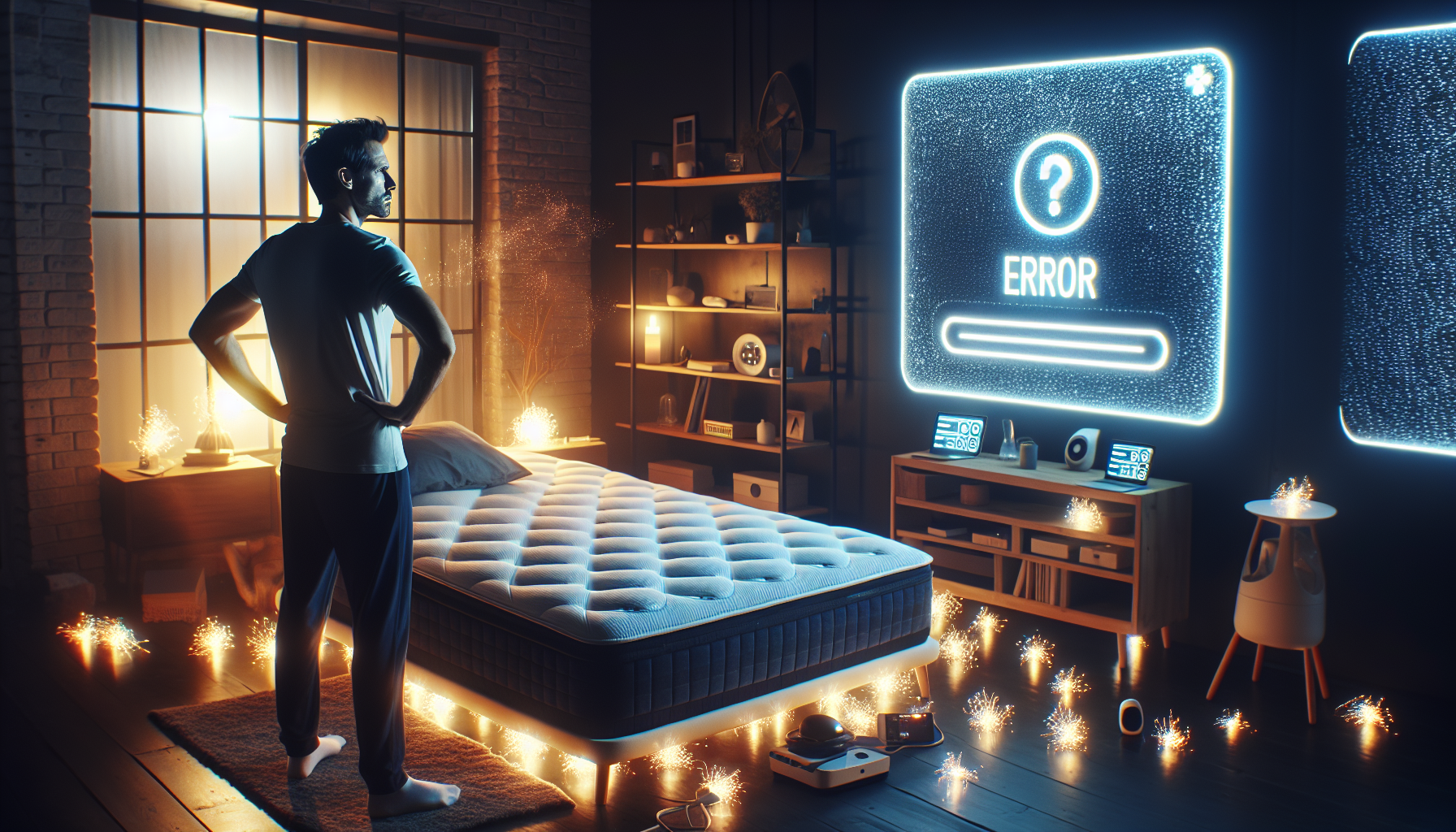
tl;dr
A major AWS outage exposed the vulnerabilities of IoT devices, as Eight Sleep's smart mattress covers malfunctioned, sparking debates about over-reliance on cloud-connected technology and data privacy risks.
**When a Smart Bed Fails: The AWS Outage Exposes Risks of Over-Connected Living**
The recent Amazon Web Services (AWS) outage on October 20, 2023, disrupted industries worldwide, but one unexpected consequence left homeowners in a sleepless situation. Eight Sleep’s $2,000+ “Pod” mattress covers, designed to regulate temperature and adjust sleep positions via internet connectivity, went offline during the crisis, leaving users stranded in uncomfortable conditions. The incident has sparked a broader debate about the necessity of internet access for everyday devices—and the risks of relying on cloud services for critical functions.
The outage, which began around 3 a.m. ET, caused AWS to report “increased error rates and latencies,” triggering a cascade of issues for businesses and consumers alike. For Eight Sleep users, the disruption meant their smart mattress covers became stuck at high temperatures or in inclined positions, rendering them unusable. The company’s CEO, Matteo Franceschetti, apologized on Twitter, acknowledging the failure to deliver on the product’s promise of “a seamless sleep experience.”
“We are taking two main actions: 1) We are restoring all the features as AWS comes back… 2) We are outage-proofing your Pod experience,” Franceschetti tweeted, promising 24/7 efforts to address the issue. By the following day, he confirmed that “all the features should be working.” However, the incident raised pressing questions: Why does a mattress need internet access? And what happens when that connection fails?
### The Paradox of “Smart” Devices
Eight Sleep’s Pod is part of a growing trend of IoT (Internet of Things) products marketed as conveniences, from smart thermostats to connected refrigerators. Yet, the AWS outage highlighted a critical vulnerability: reliance on cloud infrastructure for functions that could, in theory, operate offline. Users took to social media to criticize the lack of an offline mode, with some lamenting their beds “stuck in an inclined position” and others questioning the wisdom of entrusting sleep—perhaps the most basic human need—to a device that depends on a stable internet connection.
The incident also reignited concerns about data privacy. As one user tweeted, “Someone please explain why a bed needs internet access other than to unnecessarily share your most personal data with the manufacturer.” The Pod’s connectivity allows it to collect sleep metrics, adjust settings, and sync with apps, but it also creates a pathway for data harvesting. In the wake of the outage, many questioned whether the benefits of such features outweigh the risks of dependency and surveillance.
### A Broader Crisis of Over-Connectedness
The AWS outage was not an isolated incident. It underscored the fragility of modern infrastructure, where even minor disruptions can have cascading effects. For Eight Sleep, the crisis served as a wake-up call. Franceschetti’s promise to “outage-proof” the Pod reflects a growing awareness that IoT devices must balance innovation with resilience. Yet, the incident also raises a larger philosophical question: How much connectivity is too much?
As more devices become “smart,” the line between convenience and vulnerability blurs. A mattress that can’t function without the cloud risks turning a sanctuary of rest into a source of frustration. The AWS outage, while temporary, exposed the potential for technology to fail in ways that feel deeply personal—and perhaps, too dependent on the whims of distant servers.
### The Road Forward
For consumers, the lesson is clear: Connectivity should enhance, not complicate, everyday life. For manufacturers, the challenge is to design products that prioritize reliability and user control. As IoT continues to expand, the conversation must shift from “What can be connected?” to “What *should* be connected?”
In the end, the Eight Sleep incident is a reminder that the future of technology isn’t just about innovation—it’s about ensuring that the systems we rely on are as dependable as they are intelligent. After all, no one wants their bedtime to be a test of internet resilience.